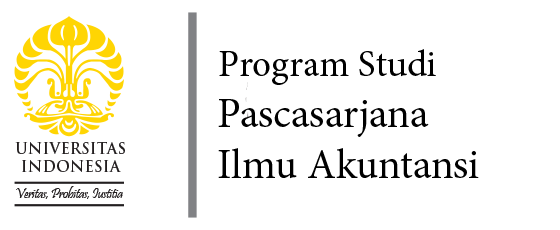ABSTRAK
Nama : MF Christiningrum
Program Studi : Ilmu Akuntansi Pascasarjana Fakultas Ekonomi
Judul :Pengaruh Strategi Diversifikasi, Leverage, IOS terhadap Kinerja dan Kualitas Laba, denganModerasi Pelaporan Segmen dan Kepemilikan Keluarga
Penelitian ini menguji pengaruh strategi diversifikasi, tingkat penggunaan utang (leverage), dan set kesempatan investasi (IOS) terhadap kinerja dan kualitas laba perusahaan multi segmen. Selain itu, akan diuji pula dampak keberadaan pelaporan segmen berdasarkan PSAK No.5 (revisi 2000) dan kepemilikan keluarga terhadap hubungan antara strategi diversifikasi, leverage dan IOS terhadap kualitas laba perusahaan multi segmen. Pengukuran kinerja menggunakan excess value (proksi kinerja pasar) dan ROA (proksi kinerja akuntansi). Kualitas laba diukur menggunakan manajemen laba akrual, manajemen laba transaksi riil dan koefisien respon laba. Ukuran tingkat diversifikasi menggunakan indeks herfindahl dan jumlah segmen perusahaan. Strategi diversifikasi terbagi atas diversifikasi related dan unrelated terhadap bisnis inti. Penelitian menggunakan sampel 120 perusahaan multi segmen (1320 firm years) yang terdaftar di Bursa Efek Indonesia pada periode 2000 – 2010.
Hasil uji menemukan semakin kecil jumlah segmen dan related dengan bisnis inti, semakin baik kinerja pasar dan kinerja akuntansi. Pengujian menemukan hubungan kuadratik antara strategi diversifikasi dan kinerja, yaitu bertambahnya jumlah segmen, setelah mencapai titik optimal tertentu akan menimbulkan efek diskon kepada nilai perusahaan. Hasil penelitian menunjukkan strategi multi segmen tidak berpengaruh terhadap manajemen laba akrual, namun berpengaruh positif terhadap manajemen laba transaksi riil (melalui diskresi biaya produksi dan arus kas operasi abnormal). Pilihan untuk melakukan manajemen laba transaksi riil dipengaruhi oleh peningkatan jumlah segmen dan tingkat penggunaan utang serta kesempatan investasi.
Pelaporan segmen menurunkan manajemen laba akrual dan transaksi riil di perusahaan dengan IOS tinggi. Namun pelaporan segmen tidak mampu menekan praktik diskresi biaya produksi dan arus kas operasi di perusahaan dengan banyak utang. Hasil ini menunjukkan pelaporan segmen berperan meningkatkan kualitas laba perusahaan multi segmen dengan kesempatan pertumbuhan tinggi, namun tidak pada perusahaan dengan utang yang tinggi.
Kepemilikan keluarga menekan manajemen laba akrual di perusahaan yang meningkat jumlah segmennya. Sebaliknya, pada perusahaan dengan IOS tinggi, kepemilikan keluarga justru dapat mendorong diskresi akrual. Sebagian bukti menunjukkan adanya respon positif pasar terhadap pelaporan segmen di perusahaan dengan tingkat utang yang meningkat, namun respon negatif pasar pada perusahaan dengan IOS tinggi dengan kepemilikan keluarga yang mendominasi.
Kata kunci: diversifikasi related dan unrelated, leverage, set kesempatan investasi, manajemen laba akrual, manajemen laba transaksi riil, earnings response coefficient, pelaporan segmen, kepemilikan keluarga
ABSTRACT
Name : MF Christiningrum
Degree : Ilmu Akuntansi Pascasarjana Fakultas Ekonomi
Title : The Impact of Diversification Strategy, Leverage, IOS on Performance and Earnings Quality through Segment Reporting and Family Ownership Moderating Factors
This study examines the impact of diversification strategies, the level of use of debt (leverage) and the investment opportunity set (IOS) on the performance and earnings quality of diversified firms. This research also examines the impact of segment reporting based on PSAK 5 (revised 2000) and family ownership as moderating factors of the relationship between diversification strategy, leverage and IOS on the earnings quality of multi-segment corporations. Performance measurements using excess value (a proxy of market performance) and ROA (a proxy of accounting performance) are also discussed. Earnings quality is measured by accrual earnings management, real earnings management and earnings response coefficients. Diversification level is measured by Herfindahl index and number of corporate segments. The diversification strategies in this study are divided into 2 groups, namely related and unrelated diversification. Samples of this study are 120 multi-segment companies (1,320 firm years) listed in Indonesia Stock Exchange for an 11-year period from 2000 to 2010.
The test results indicate that the smaller the number of segments related to the core business, the better the market performance and accounting performance. The study also indicates that there is a quadratic relationship between diversification strategy and performance, i.e. increasing the number of segments, after reaching a certain optimum point will discount the value of the company. The results of the study also find that multi-segment strategy does not affect the accrual earnings of the firm, but a positive effect on real earnings transactions (via discretionary costs of production and abnormal operating cash flow). The option to perform transactions in real earnings management is significantly influenced by the increase in the number of segments and the level of debts as well as the use of investment opportunities set (IOS).
Segment-reporting reduce the accrual earnings management and real earnings management in companies with high IOS. However, the segment reporting is not able to reduce the practice of discretionary of production costs and operating cash flow of the company with high indebtedness level. These results indicate that the segment reporting take an active part in improving the earnings quality of multi-segment companies with high growth opportunity, instead of companies with high level of indebtedness.
The family ownership able to reduce accrual earnings management in companise with higher number of segments. In contrast, in companies with high IOS, family ownership is actually able to encourage discretionary accruals. The are some evidence of a positive market response to the segment reporting in companies with increasingly indebtedness level , but indicate a negative response of market for family-ownership-dominated companies with high IOS.
Key terms: related and unrelated diversification, leverage, investment opportunity set, accrual earnings management, real earnings management, earnings response coefficient, segment reporting, family ownership
